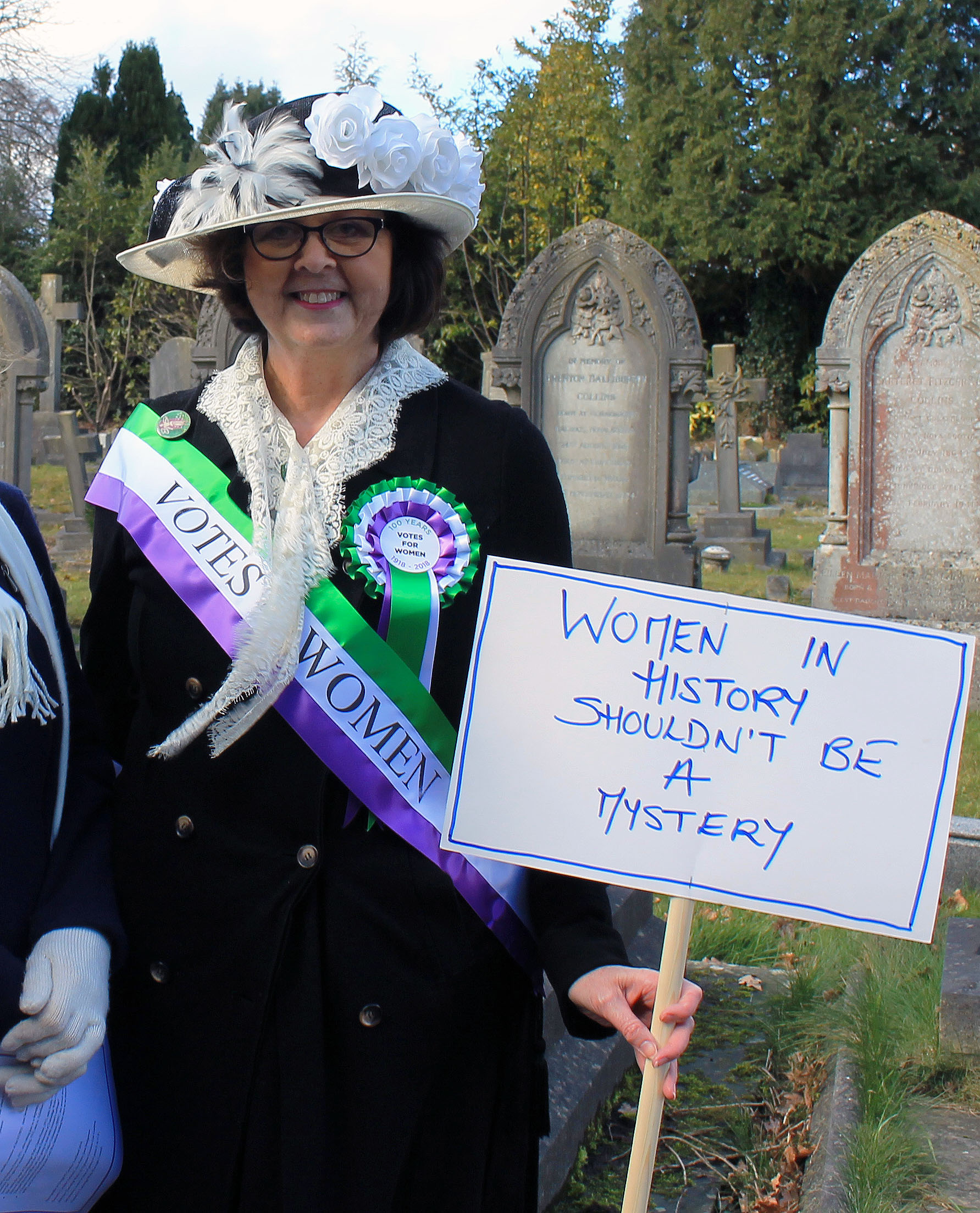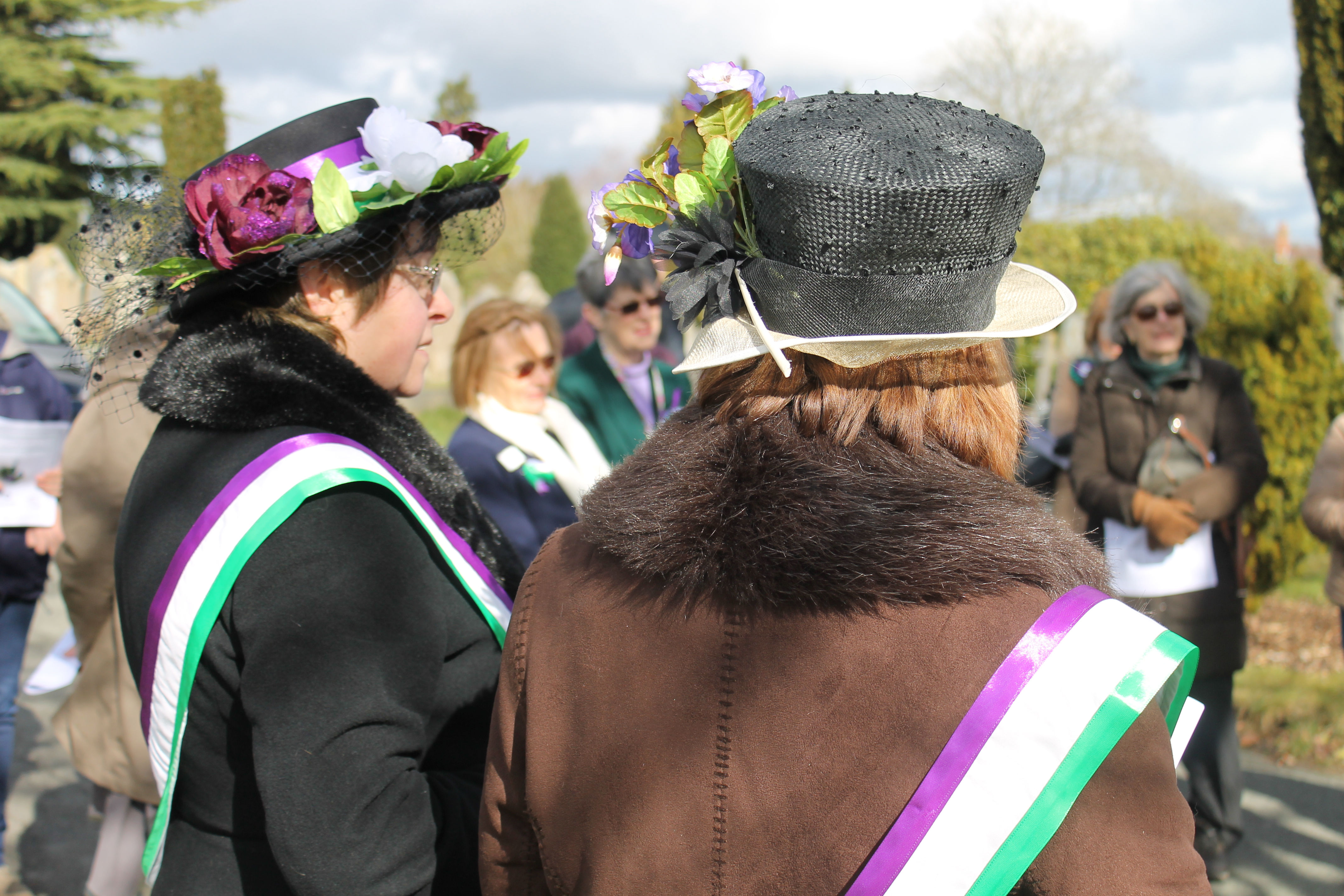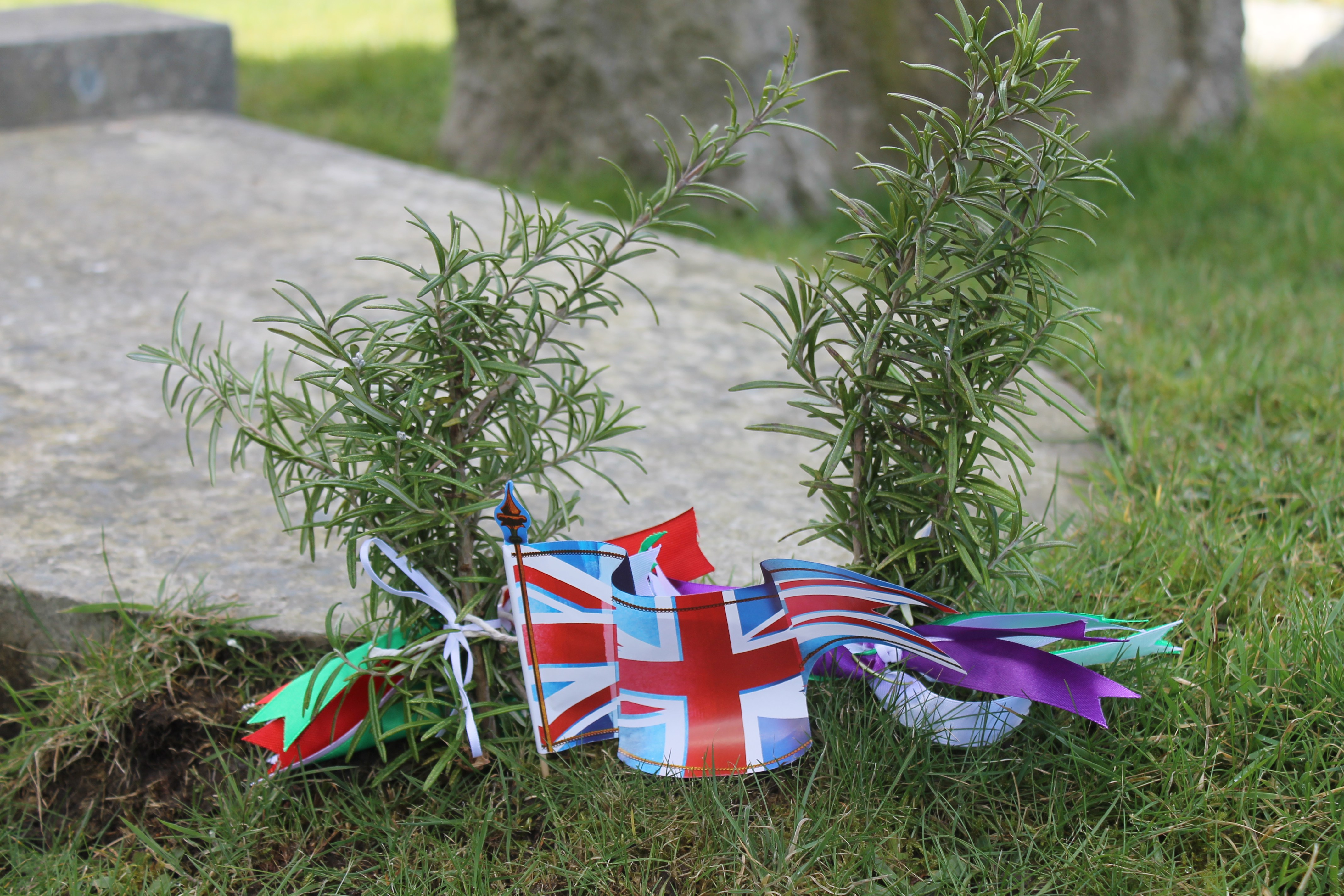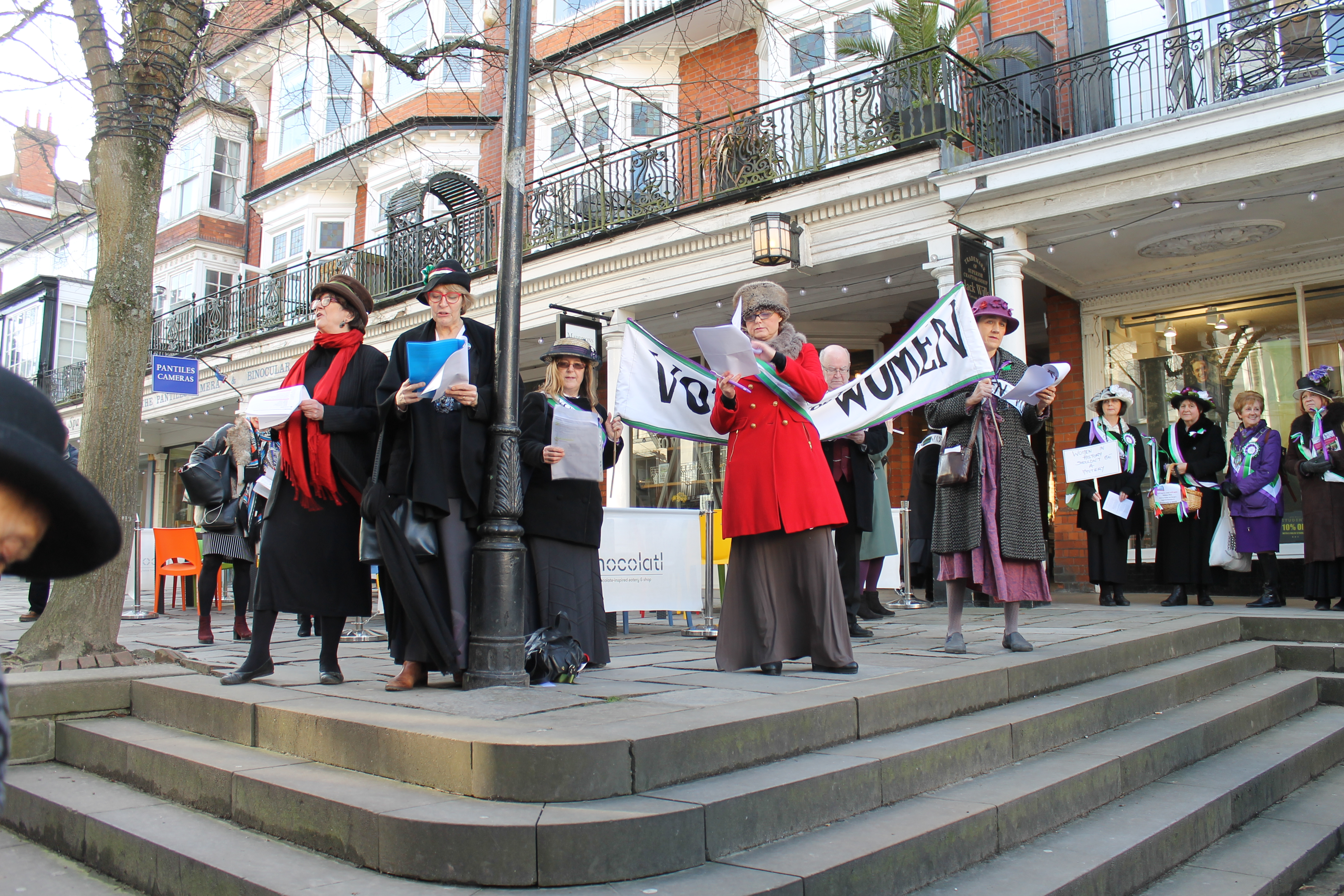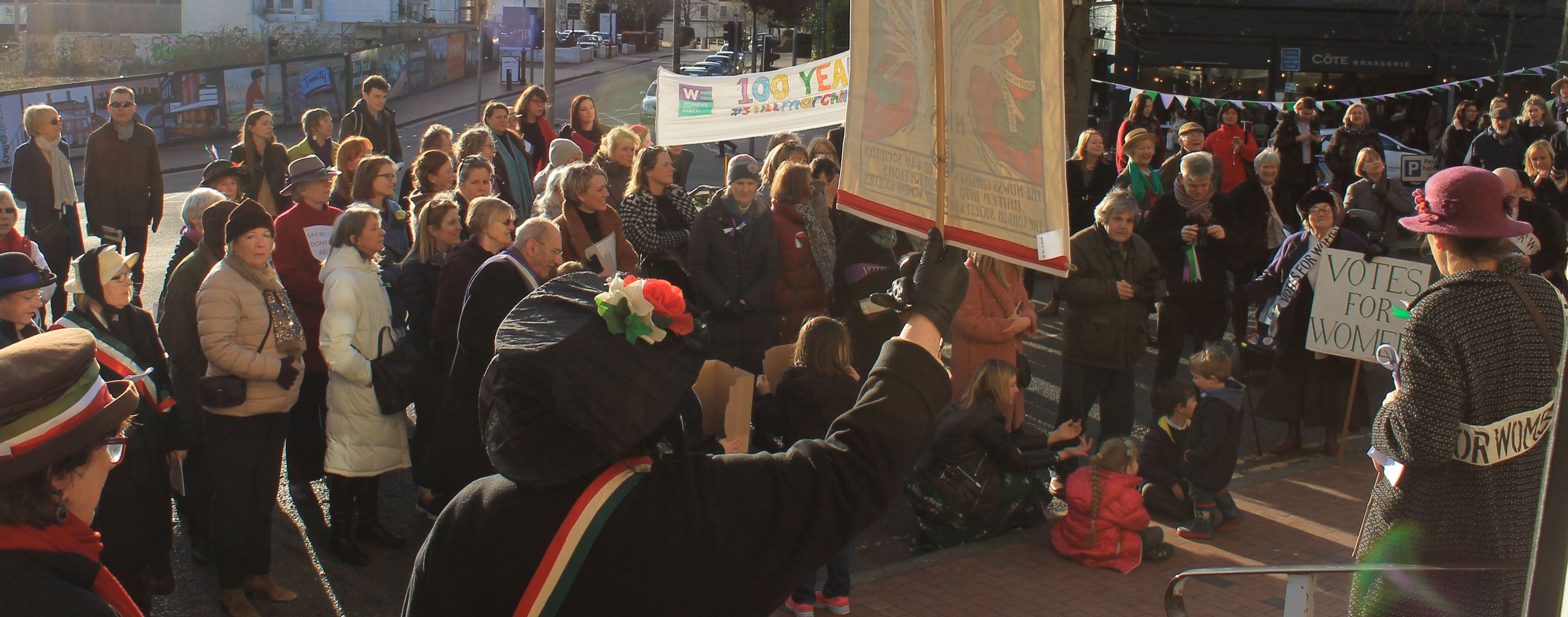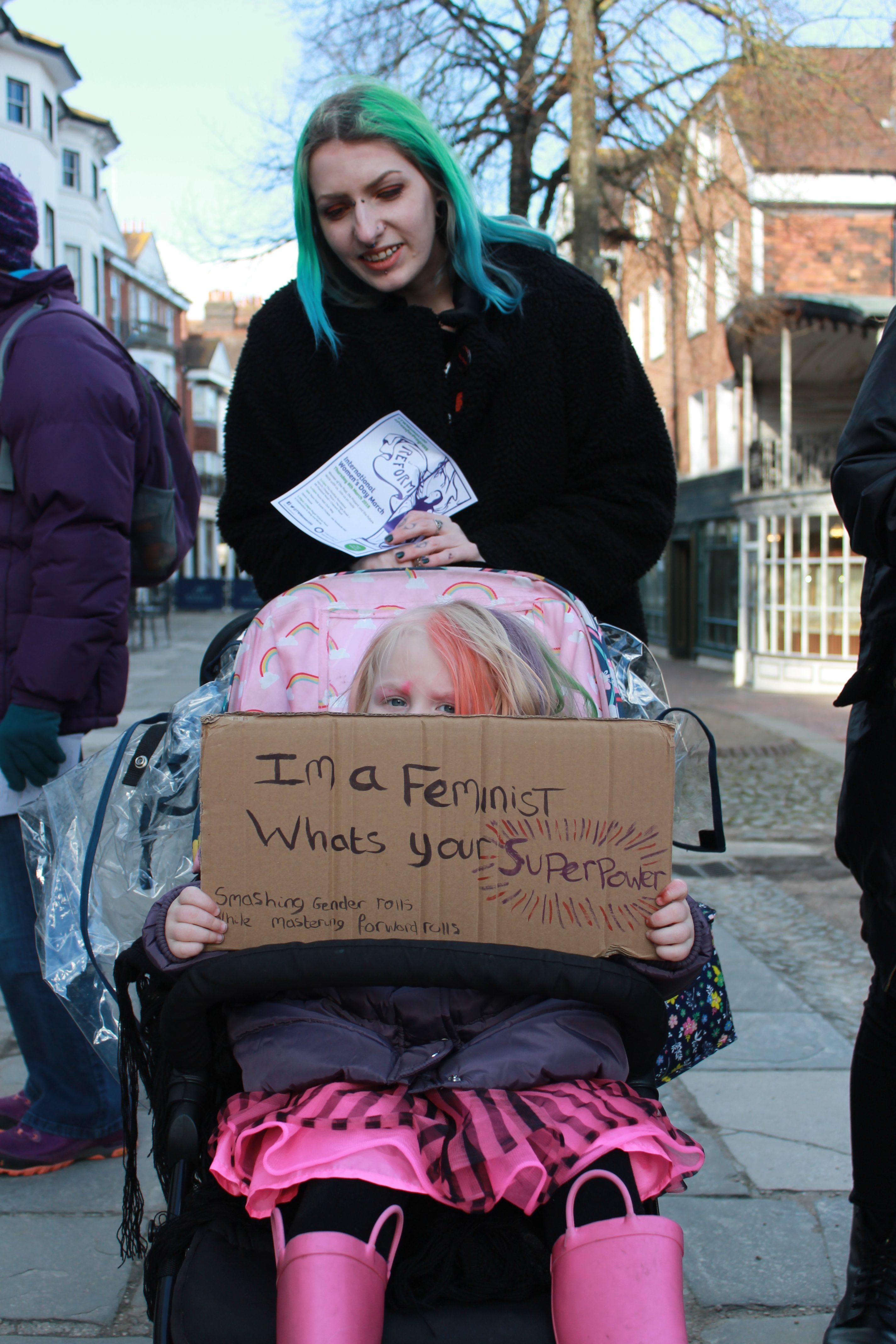Marching alongside some of the most empowering women I have ever met in the footsteps of history is a feeling I will never forget.
I will admit I didn’t have high expectations for the women’s march. Tunbridge Wells is a very typically conservative and quiet town and I knew it wouldn’t match up to the drama and rebellious nature of the London’s Women’s March. In fact, my mum even joked about it on the drive there – “I hope you’re not expecting much, love. Only 16 people have confirmed they are going on Facebook, it might be a bit embarrassing. We can always sneakily slip away and have a coffee instead!”.
She couldn’t have been more wrong.
Prior to International Women’s Day, I contacted one of the women devoting her time to organise the event. This lady was Caroline Auckland and she has now become a feminist inspiration for me.
I first met her at Tunbridge Wells cemetery for the 'Women in History Shouldn't Be A Mystery' memorial service she was taking to commemorate the lives of the suffragettes/suffragists that lived there. She, like some of the other women attending the service, was dressed up as an authentic 1900’s suffragette. Each of the ladies wore sashes that read ‘Votes for Women’, and they were in the traditional Suffragette colour scheme – purple to represent loyalty and dignity, white for purity and green for hope.
I was then introduced to the rest of the women who had helped to organise International Women’s Day. They were an apolitical group of women all striving for the same thing: a day to celebrate the incredible women of Tunbridge Wells. Many of the women were Soroptomists, which is a global women’s organisation that help women and girls around the world.
Ahead of the march, Caroline told me why she chose to get involved in Tunbridge Wells’ International Womens Day:
“I’m passionate about women’s history. Women basically disappear in history - they become relics, they’re named after their husbands, they just become widows. And I really wanted to find out about women, what they did, and uncover some of the lost stories of our very rich female heritage.
There are so many interesting women buried here but I wanted to have eight [for the memorial service] that represented all sorts of different things from traditional roles of nursing, through to suffragettes to female fighter pilots and women newspaper journalists. I wanted to get the girl guides involved so they did the lovely ribbons for us which we tied round rosemary bunches for remembrance to place on each grave. Then our local female councillor, one of our important female councillors, because we don’t have enough women on our local council who are female in terms of the representation of diversity in Tunbridge Wells came so it’s been a lovely day to celebrate womens achievements."
I was shocked to find out just how important Tunbridge Wells’ efforts were for the Suffrage movement. In fact, it could even be considered as a pinnacle local town for the movement. I loved learning more about the history of women who lived locally and it was a beautiful, touching memorial service that really highlighted how challenging it was for women of the time and just how far women have come in the fight for gender equality since the days of the Suffragettes.
After the service, I asked Caroline if she would be attending the march. “I am yes. I’m going to help decorate the banners and stand on the Pantiles and there I’m going to be Louisa Twining who was interested in the workhouse and laws and things that affected women. We’ll be marching through the town, then we’ll be going to visit the Suffragist shop on Crescent Road and join with ‘Create Choir’ and we’ll be singing ‘March of the Women’. We’ll be going to the town hall and then further on to the opera house to celebrate Olive Walton coming out from underneath the stage with the famous Emily Wilding-Davison who died under the King’s horse.”
I really wanted to know what Caroline’s expectations were for the march. When I asked her what she was hoping to achieve, she said: “I’m really hoping a lot of people will come, but I’m especially hoping that our younger generation will come.
One of the things that we’ve done is that we are offering a Suffragette hat competition, so I know that tonight we are going to be having 30 or 40 Brownies who will be coming into the Royal Victoria Place with their suffragette hats on to be judged. They are then going to be able to hear inspirational women talking to them about their future and Rock Choir are going to be there singing inspirational songs.
We really want to end this day on a high for Tunbridge Wells. I look forward to showing our young girls how fantastic our history is and what can we achieve in the next hundred years. I hope everyone will get the message that Tunbridge Wells are really interested in women’s history and are pressing for progress.”
I can wholeheartedly say that the march exceeded Caroline’s, my Mum’s and my own expectations.
Not only did over two hundred people attend the march, many came dressed up in Suffragette and military costumes, had banners and signs and were wearing face paint. All ages attended, from toddlers holding placards reading, “I’m a feminist, what’s your superpower?” to the elderly with their walking sticks powering through their fatigue and marching around town for the cause.
It was incredible.
The ladies of Tunbridge Wells even made the busy town traffic stop for the march. Passing cars honked their horns and we received encouraging cheers from onlookers. We were making sure everyone knew that today, we were marching to celebrate the inspirational local women who fought for our right to vote.
I even met a lovely local lady, Angela McPherson, who had an incredible story to tell about one of her family members:
Marches have been pinnacle to campaigns. In modern day, I believe they are still as relevant as they were 100 years ago.
This is something that I have realised is massively important: Yes, large-scale marches are the most impactful but smaller-scale local marches are just as vital for the movement. It’s all about communities of women, everywhere, no matter how big or small, joining forces to demand change. Without women fighting across the nation, we would not have the vote today.
Every single person makes a difference. Every single person can help make the change.
I’m proud of how far we’ve come ladies, but our fight for equality is not over. It’s time to don our boxing gloves, step into the ring and end inequality once and for all.
